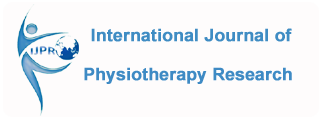IJPR.2024.104
Type of Article: Original Research
Volume 12; Issue 2 (April 2024)
Page No.: 4681-4688
DOI: https://dx.doi.org/10.16965/ijpr.2024.104
Effect of Random, Blocked, and Mixed Practice Order on Upper Extremity Motor Learning in Subjects with Parkinson’s Disease
Sneha Kini *1, Lakshmiprabha Rangarajan 2, Prajakta Naik 3.
1,3 B.P. Th, M.P. Th in Neurosciences.
2 Assistant Professor, P.T. School and Centre, Seth G.S. Medical College, and K.E.M Hospital, Mumbai.
Address for Correspondence: Dr. Kini Sneha V. (PT), B.P. Th, M.P. Th in Neurosciences, P.T. School and Centre, Seth G.S. Medical College, and K.E.M Hospital, Mumbai, India. E-Mail: snehakini8@gmail.com
ABSTRACT
Background: Random practice order has been shown to improve motor learning in normal individuals as well as sports players. The purpose of this study is to investigate which practice order is beneficial in subjects with Parkinson’s disease.
Methodology: The total number of Subjects included in this study was 32. Blocked practice order followed by random followed by mixed practice order was given. In between washout period of 1 week was given. Response time during acquisition and retention was assessed. Data were analyzed statistically by using one-way ANOVA.
Results: The mean time taken by the subjects was maximum with Random practice order with (p=0.001, SD= 10.73) during Acquisition and (p=0.003, SD=8.88). The mean time difference was maximum with random (p= 0.001) in both the acquisitions as well as retention phases. On comparing the difference between the 1st and 10th trials of all three practice orders by using Analysis of Variance (ANOVA) post hoc analysis by using Tukey’s test, we observed that in subjects with PD Random practice order is more beneficial than mixed and blocked respectively.
Discussion: On comparing all three practice orders we can infer that Upper Extremity motor learning skill was superior with Random practice orders followed by Mixed and blocked practice orders respectively in both the acquisition and retention phases.
Keywords: Parkinson’s Disease, Motor Learning, Practice Order, Acquisition, Retention.
REFERENCES
[1]. Search Results | National Institute of Neurological Disorders and Stroke [Internet]. www.ninds.nih.gov. 2024 [cited 2024 Feb 20]. Available from: https://www.ninds.nih.gov/health-information/disorders/parkinsons-disease[2]. O ‘Sullivan S., Thomas J. Schmitz. Physical Rehabilitation: Parkinson’s Disease.
[3]. Cook S.A, Woollacott M: Motor Control, translating research into clinical practice. 4th Edition Philadelphia, Lippincott Williams& wilkins. 2012; P26-33.
[4]. MERBAH S & MEULEMANS T. University of Liege. Learning a motor skill: effects of blocked versus random practice a review. Psychological Belgica 2011; 51-1: 15-48.
https://doi.org/10.5334/pb-51-1-15
[5]. Battig, W.F. Facilitation and interference. In E.A. Bilodeau (Ed.), Acquisition of skill.
New York: Academic Press.1966;215-44.
[6]. Batting. The flexibility of human memory. In Cermak L.S & Craik F.I.M. (Eds.), Levels of processing in human memory Hillsdale.1979:23-44.
[7]. Zamani A, Rajaeeian B, Moradi A and Rostami S. Comparison of Three Methods of Practice on the Learning of Volleyball Basic Skills in School Boys. World Journal of Sport Sciences 2013; 8(1): 22-27.
[8]. Schmidt R.A, Lee T.D. Conditions of practice. In: Schmidt RA, Lee TD, eds. Motor Control and Learning: A Behavior Emphasis. 2005;11(3)321-63.
[9]. Shea C.H., & Zimny S.T Context effects in memory and learning informa- tion. In R.A. Magill (Ed.), Memory and control of action. Amsterdam: North Holland.1983;345-66
https://doi.org/10.1016/S0166-4115(08)61998-6
[10]. Shea, J.B., & Morgan, R.L. Contextual interference effects on the acquisition, retention, and transfer of a motor skill. Journal of Experimental Psychology: Learning, Memory, and Cognition 1979;5:179-87.
https://doi.org/10.1037//0278-7393.5.2.179
[11]. Immink, M.A., & Wright, D.L Contextual interference: A response planning account. The Quarterly Journal of Experimental Psychology. 1988; 51:735-54.
[12]. Keller, G.J., Li, Y., Weiss L.W., & Relyea, G.E. Contextual interference effect on acquisition and retention of pistol-shooting skills. Perceptual and Motor Skills, 2006;103:241-52.
https://doi.org/10.2466/PMS.103.5.241-252 PMid:17037668
[13]. Lee, T.D., Wishart, L.R., Cunningham, S., & Carnahan, H. Modeled timing information during random practice eliminates the contextual interference effect. Research Quarterly for Exercise and Sport 1997;68: 100-105.
https://doi.org/10.1080/02701367.1997.10608871 PMid:9094768
[14]. Sideway B, Ala B, Baughman K, Glidden J, Cowie S, Peabody A, Roundy @al, Spaulding @al, Stephens @al, Wright @al. contextual interference can facilitate motor learning in older adults and individuals with Parkinson’s Disease. Journal of Motor behavior.2016
https://doi.org/10.1080/00222895.2016.1152221 PMid:27340809
[15]. Shea, C.H., & Zimny, S.T. Context effects in memory and learning information. In R.A. Magill (Ed.), Memory and control of action Amsterdam: North Holland.1983;345-56
https://doi.org/10.1016/S0166-4115(08)61998-6
[16]. Lin (Janice) C. H, Sullivan Katherine J, Wu Allan D, Kantak S. and Winstein C.J. Effect of Task Practice Order on Motor Skill Learning in Adults with Parkinson Disease: A Pilot Study 2007; 87:1120-31.
https://doi.org/10.2522/ptj.20060228 PMid:17609332








